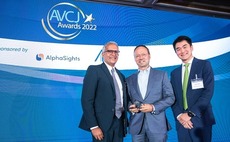
Buyout approvals: Holding pattern
Taiwan’s Financial Supervisory Commission has put forward guidelines intended to make the approvals process for PE-backed take-privates more transparent. Industry participants are cautiously optimistic
Having sat near the foot of the Asian PE investment rankings in 2012, ahead of only Pakistan, Taiwan is on course for a more creditable seventh this year. The jurisdiction is currently comfortably ahead of eighth-placed Singapore with $2.39 billion in announced deals.
It should be noted, though, that most of this went to one deal: Morgan Stanley Private Equity Asia and Far EasTone Telecommunications' acquisition of cable TV provider China Network Systems (CNS) from MBK Partners.
For William Bryson, senior advisor at Global Market Advisors and chairman of the American Chamber of Commerce''s (AmCham) PE committee, this deal is generally encouraging, but no game-changer in terms of his lobbying efforts. "A foreign-owned asset is being transferred into the hands of another foreign entity. It happens all the time, albeit not on such a scale," he says. "As such, it is not really a litmus test."
Any litmus test would need to involve the transfer of ownership from local public shareholders to foreign private investors. Persuading the government to introduce a more transparent approvals process for these deals has been a priority for AmCham and the Taiwan M&A and PE Council (MAPE) for the past four years.
Guidelines recently issued by the Financial Supervisory Commission (FSC), while welcomed by industry participants, are still somewhat contentious. "It is an improvement so the PE guys are happier, but there is that famous catch-all - ‘other considerations,'" says Jack Huang, partner-in-charge of Jones Day's Taipei office. "What are these considerations? The government says, ‘We can't tell you what they are right now.'"
Wish lists
No PE firm has attempted to privatize a Taiwan-listed company since 2011 when a KKR-backed management buyout of Yageo was blocked. The government cited concerns about the price and protections for minority shareholders, even though a majority of minority shareholders favored the deal.
AmCham and MAPE want the following: clear guidelines on foreign investment criteria; a list of sectors in which foreign PE investment is not welcome; deal assessments that follow specific timelines; and explanations if investments are rejected. Amendments to the Business Mergers and Acquisitions Act offered cause for optimism. They say that take-privates can go through if endorsed by third-party expert analysis, approved by an independent committee, and accepted by at least two thirds of shareholders.
While the new guidelines on reviewing investment applications from overseas Chinese and foreign parties appear to be an attempt to offer more clarity, industry participants are wary of the broad language and call for more detail.
For example, the FSC wants to be comfortable with the source of funding for a deal, its structure and financing, and the potential impact on local labor. But would the regulator dig deep enough into funding sources to raise questions about particular LPs in a fund? How much documentation would be required to provide assurances as to the viability of a deal structure? And what is expected in terms of layoffs and compensation that might arise from a buyout?
Other omissions are more glaring, with no reference made to the two thirds voting threshold in protecting shareholders' rights. The FSC also adds that applications will be ruled on within one month of a complete submission being made, or two months if other agencies must also weigh in on a particular decision.
This raises the question of what constitutes a complete application. "The old technique was they would ask for more and more documentation so they could argue that the application never was complete. That is an ambiguity that we have inquired about," says Bryson. AmCham would like to see an auto-approval mechanism as stated in the Fair Trade Law, whereby an application is "deemed approved" if the regulator does not respond within a specified timeframe.
Mixed feelings
Huang of Jones Day is generally positive about the guidelines, placing them in the context of a gradual transition from zero transparency to something more workable, and a bureaucracy that must take into account the will of politicians. Indeed, the FSC expected and has waited for a response from AmCham and MAPE.
Opinion within the PE community appears divided. One view is that the guidelines are simply more of the same - "too objective" - and progress has been minimal. Others suggest that the government would welcome the opportunity to approve a deal in order to demonstrate good faith. As it stands, no one is comfortable enough to put it to the test.
"There are opportunities - industry consolidation, companies that want to be privatized, succession planning issues - but Taiwan is not transparent," says C.Y. Huang, president of FCC Partners and founding chairman of MAPE. "Some investors are just waiting. They say, ‘Your regulator is making things difficult, so I will hold on until you are trading at a more reasonable level.'"
Latest News
Asian GPs slow implementation of ESG policies - survey
Asia-based private equity firms are assigning more dedicated resources to environment, social, and governance (ESG) programmes, but policy changes have slowed in the past 12 months, in part due to concerns raised internally and by LPs, according to a...
Singapore fintech start-up LXA gets $10m seed round
New Enterprise Associates (NEA) has led a USD 10m seed round for Singapore’s LXA, a financial technology start-up launched by a former Asia senior executive at The Blackstone Group.
India's InCred announces $60m round, claims unicorn status
Indian non-bank lender InCred Financial Services said it has received INR 5bn (USD 60m) at a valuation of at least USD 1bn from unnamed investors including “a global private equity fund.”
Insight leads $50m round for Australia's Roller
Insight Partners has led a USD 50m round for Australia’s Roller, a venue management software provider specializing in family fun parks.








